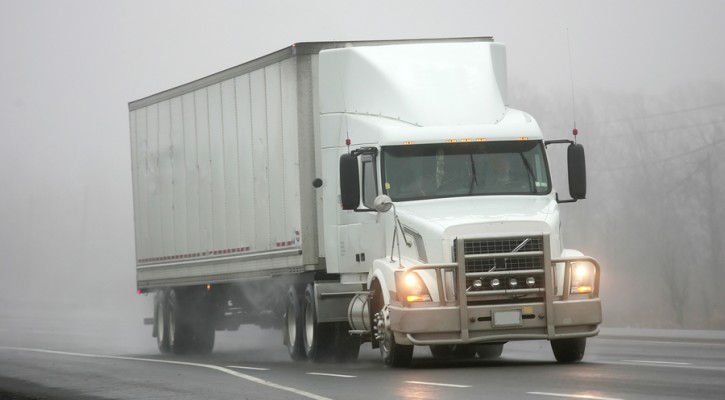
Wipers for Your Mirrors
March 26, 2014
For most truckers, getting more miles means getting more money. That means that whenever inclement weather hits, and drivers must pull over to wipe off their rearview mirrors, they are losing precious time to rack up miles before they reach their HOS limit. However, this simple yet ingeniously-practical invention may help:
Types of Truck Driving Jobs
March 26, 2014
Truckers come in all shapes and sizes – as do truck driving jobs. Choosing the right type of work is the first step in finding a career path that works for you. In the trucking industry, there are three major types of driving jobs, each with its own MAJOR differences: over the road (long distance), regional, and local.
Over The Road
This is the most exciting, grueling and lonesome work. It is not for the faint of heart, and it’s certainly not for the family man. Long haul truckers are gone for weeks at a time, living a nomadic lifestyle that is best suited for adventurous loners that don’t mind losing touch with the people back home. This type of job ecompasses your whole life, which is great for some people: people who just want to roam, who want to see each corner of the country, who are good at making friends on the fly, and then departing for long spells of solitude. Over the road jobs are also easier to find. Not many people can handle this type of work, so turnover is high and employers are always desperate to fill these positions fast. For these reasons, the pay is usually better.
Regional
The regional trucker also gets to make great money, with the added benefit of more home-time. A typical workweek is five days a week, with weekends off for time with the family. However, most employers don’t consider a “weekend” as something that begins Friday afternoon and ends Monday morning. Some companies won’t get you home until Saturday morning, often hauling a load that is expected to be delivered by Monday morning – meaning that you will have to depart again Sunday night. So, you get home at 7 a.m. on a Saturday and have to leave again around 11 p.m. on Sunday. There is a lot of variation between companies, though. Some are better at scheduling, some have nicer trucks while others have maintenance issues, some require loading and unloading while others don’t, some pay by the mile while others pay salary, and the average income between companies can vary quite a bit. However, since there is a serious shortage of truckers these days, chances are you can be picky and choose a better company with reliable trucks, high pay and good working conditions, especially if you have at least a year of experience under your belt.
Local
As a local driver, you will never be far from home. The type of work varies greatly, with duties that range far beyond simply driving. You could be loading and unloading, operating cranes and other heavy machinery, pumping fluids, or moving livestock. You will spend less time on the highway and more time on local streets with heavier traffic. The work is more physically demanding, and mental alertness is key with all the heavy-traffic driving that is required. Since more drivers seek out local jobs, the competition is far greater, and often, the pay is quite a bit less.
Each type of job comes with its own kind of living, and each takes a certain kind of style. Choosing the one that is best for you and your life will result in greater job satisfaction and overall happiness.
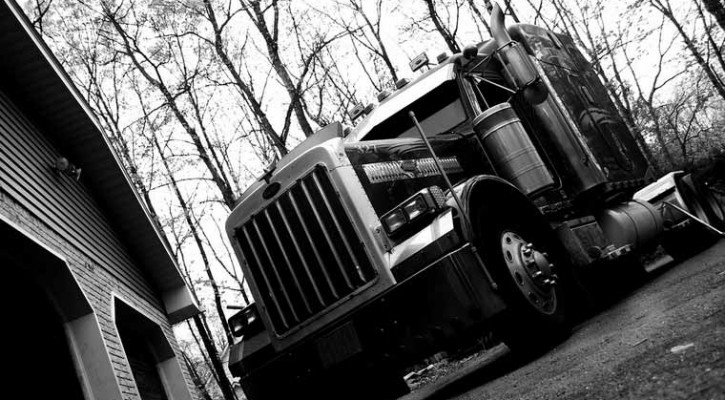
Beware! It Could Happen to You!
March 25, 2014
Jimmy Nevarez locked himself out of his truck one day. Lucky for us, he’s a big enough man to overcome the embarrassment and write an entertaining blog post about it – complete with lessons learned and advice for the future. See the full story here:
http://www.teamrunsmart.com/the-pros/jimmy-nevarez/march-2014/locked-out
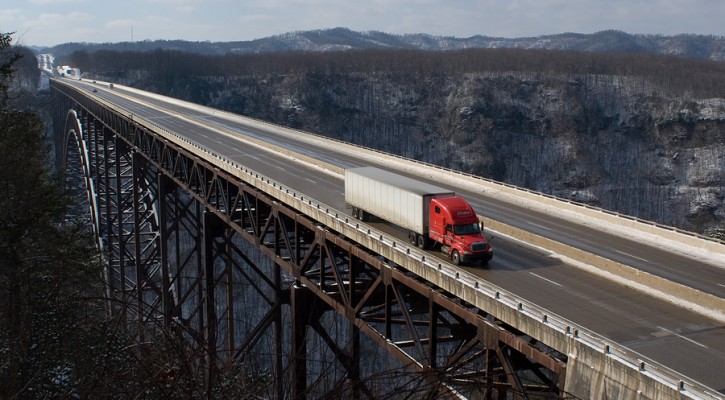
ATRI President Rides with Real Truckers
March 25, 2014
Rebecca Brewster, the President and Chief Operating Officer for the ATRI (American Transportation Research Institute) will gain some hands-on experience as she hitches a ride with two real truckers to the 5th Annual “Salute to Women Behind the Wheel”.
The ride-along will begin tomorrow (March 26th) with Stephanie Klang, who has been driving for Con-way since 1987. The second driver, Monica Abdul-Rashid of Shneider, will finish the long-haul to the Mid-America Trucking Show in Louisville, Kentucky.
This ride-along has been organized by the Women in Trucking Association (WIT), and according to WIT President and CEO Ellen Voie, it is intended to be “a great opportunity to give legislators, regulators and industry leaders the opportunity to experience a small part of a driver’s job.”
Young Drivers Vs Truckers
March 23, 2014
If you’re a new driver, then chances are you haven’t gained much experience in sharing the road with truckers. You may not realize that driving around an 18-wheeler is different than driving around other vehicles. If so, then this quick rundown on safe driving techniques is for you:
Mind Wide Turns. Large trucks make wide turns, and must swing left before making a right turn, or swing right before making a left turn. So, watch their turn signals and give them plenty of room to maneuver, and never drive between a turning truck and the curb or your car will get stuck.
Avoid Blind Spots. If you can’t see the driver, then the driver can’t see you. If you are driving along the left or right side of a truck, then make sure you can see the driver in the side mirror. If you can’t see them, then slow down or speed up immediately to get out of their blind spot.
Don’t Tailgate. If you drive too close to a large truck, then you won’t be able to see what is happening down the road, and the trucker won’t be able to see you at all. If, for any reason, the truck should need to stop quickly then you are likely to run right into their rear end. Or, if you decide to switch lanes then you will be emerging from a blind spot into a blind spot, which means that if the trucker switches lanes you are likely to get hit. Also, many trucks haul trash, dirt, trees and other debris that could fly out and damage your vehicle.
Don’t Cut Off. It is extremely dangerous to cut off a truck in traffic. It takes a large tuck considerably more time and distance to stop, meaning that your life will be at risk if you must slow down because of traffic or road hazards.
Be Predictable. Make life a little easier for the working trucker by driving like a sane, predictable person. Maintain a constant speed, use your blinkers with plenty of signal time, and slow down gradually, giving others on the road plenty of time to react.
Be Alert. Avoid distractions such as texting or talking on the phone, keep your hands on the wheel and your eyes on the road. Since trucks can’t stop as quickly as cars, any mistakes you make will become more fatal if you are on the same road as a truck.
Be Considerate. People driving trucks and buses are at work. They are there because it is their job. They are not there to make your life more difficult, in fact, just the opposite. Bus drivers are transporting people where they need and want to go. Truckers are delivering the goods that everyone needs and wants to buy. They are all there to make your life easier, so show some respect.

Pros and Cons of Teaming Up
March 22, 2014
Truck driving is a demanding job. However, teaming up with a reliable partner – maybe even a husband or wife – is a great way to lighten the load.
Pros
1. Quicker Deliveries. By staggering sleep schedules, team drivers can cover twice as many miles as a solo driver.
2. More Opportunities. Clients and employers prefer the most efficient drivers. The quicker the goods get delivered, the more money everyone makes.
3. Less Loneliness. There will always be someone beside you. When not sleeping, that person can help with navigation, as well as provide great conversation. And when the delivery is completed, you’ll have someone to hit the town with.
Cons
1. No Stopping. With staggered sleep schedules, ya’ll can keep on trucking all the way across the country. Besides a few pit stops, there won’t be many opportunities to take a break from moving down the road.
2. Back-Seat Drivers. If one person is more adept at handling an 18-wheeler (or thinks they are), then expect a steady flow of criticism.
3. No Alone Time. If you’re teaming up, even if it’s with a spouse, you had better make sure that the two of you will not get sick of each other. Even married couples can’t stand to be together for too long of a time period, and everyone has a tick or a pet peeve that can really drive them mad. Find a driving partner that you’re sure will make a great match, then test the relationship with a long road trip.
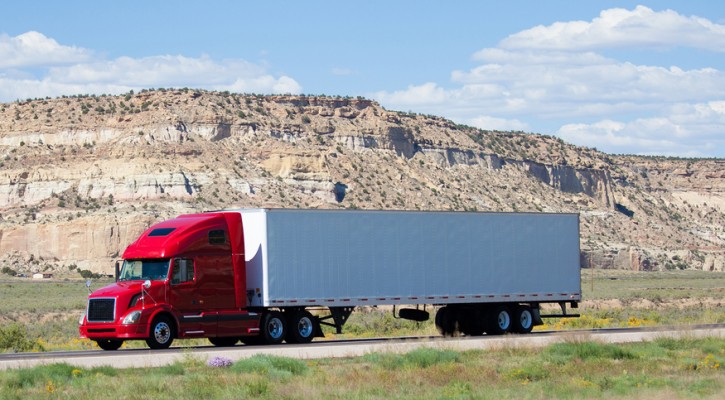
The Truth About Trip Planning
March 21, 2014
Take it from a trucker: the best laid plans can fall to pieces. It’s all a gamble, really, but it makes for a great read. See the full story here:
http://www.truckingtruth.com/trucking_blogs/Article-3815/the-best-laid-plans-can-fall-to-pieces
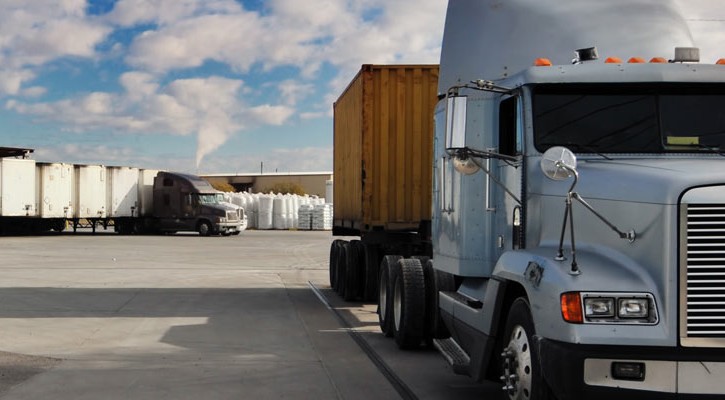
Preserve Technologies Could Save Truckers 11 cents per Mile
March 14, 2014
A new technology has been developed that will significantly reduce oil and fuel consumption in trucks and buses. The ONBOARD ECVD system is a refiner that enables trucks to save up to 11 cents on the mile, avoid oil disposal liabilities, preserve engine life and give us all a cleaner environment. See full story here.

Support Our Truckers
March 14, 2014
During catastrophes, it is truckers who deliver the life-saving supplies needed in devastated cities. When hurricanes and tornadoes rip through towns, it is the truckers who come with supplies, and truckers that transport out debris. During the coldest, darkest parts of winter, many states have propane shortages that result in emergency declarations, which are solved by the transporting efforts of, you guessed it, truckers. And, after the water was contaminated during the fiasco in West Virginia, it was truckers who delivered the life-sustaining bottled water to local residents.
Their much underrated duty deserves a spotlight, and local authorities need to understand the federal regulations in times of emergency, so these great Americans can do their job when we need them most. So, let’s stand beside our nation’s truckers, especially when disaster strikes… which seems to be happening a lot these days.
Pop-Up Produce Stands: A Light at the End of the Truck Stop Food Tunnel
March 13, 2014
The long winter is coming to an end. Spring and summer are just around the corner, and some day very soon the fruit and vegetable growers will come out of hibernation, bringing oh-so-fresh food right up to the roadsides.
Don’t miss out on this seasonal horn of plenty. There will be homegrown tomatoes, peppers, avocados, cucumbers and squash – all of which taste great in the raw. Texas peaches are impossible to resist, Washington will be full of deliciously sweet apples, and California will be overflowing with a wide variety of berries, grapes, oranges and grapefruit.
After a long, cold driving season of greasy truck stop food, this fresh produce is sure to sooth the bowels, revitalize the mind and, you know, actually taste good.
So keep an eye out for the coveted produce stand as you drive down these well known interstates and highways:
Texas: US 281, US 77
California: I-5, US 99
Oregon: I-84
Washington: I-84, I-82, I-90, US-395
Michigan: US 31
Georgia: US 52
Florida: I-95, US 27
Alabama: US 90
Mississippi: US 49
